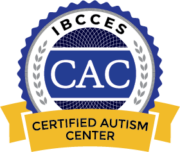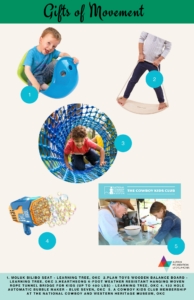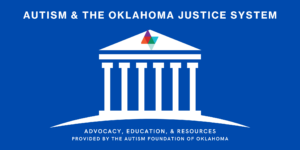A major area of contention in the Talent Acquisition field is the role of experience and how valuable it is. Indeed, the very thing that can lead to finding the most qualified candidate in one situation is not always the best option. I call this the Experience vs. Qualification paradox because experience is often overvalued when in reality, it could be unnecessary.
Firstly, there are distinctions between experience and qualifications that should be noted for better clarification. Qualifications pertain to the skills, training, and education learned and help prepare candidates for future roles (LinkedIn editorial team, 2021). Experience pertains to work that has already been completed and showcases the candidate’s skill, knowledge, and abilities (LinkedIn editorial team, 2021). While these two definitions share many similarities, the differences are where the issue becomes noticeable. Notice that experience is the application of past work, while qualifications are the preparation for future work. The issue then seems to be that many roles are misclassified as entry-level when in reality, they are not.
The issue becomes more salient when we examine the pros and cons of qualifications and experiences. The pros of qualifications are that candidates can build their knowledge through education and many companies require or prefer specific degrees (Aspire Personnel, 2022). The con of qualifications is that education is not always valued/necessary and presents many uncertainties about how candidates will perform on the job. The pros of experience are that it shows a practical application of daily work and shows what qualities candidates exhibited in past work (Aspire Personnel, 2022). The con of experience is that previous experience is required and that tenure does not mean much if it does not apply to the job. The idea is to have a mix of the two, but that is only sometimes possible, and one or the other will sometimes be valued over another, depending on the situation/job.
Taken together, the question that needs to be asked is when is experience necessary for a job and when is it not? Unfortunately, many employers seem to favor experience like a crutch that should be mandatory in a job description or, at the very least, considered favorably. What we see are many employers placing experience on a pedestal regardless of the job type or position on an organizational chart. For example, entry-level positions usually will have experience prerequisites built into them that typically are unnecessary for the job. As a result, many qualified candidates are overlooked or removed because they still need to meet the experience requirement. The fallout for the candidates is the sense that they are not able to showcase their knowledge, skills, and abilities because they were not able to show them elsewhere. Likewise, the fallout for organizations is that they miss out on potential great fits because they did not meet the one fit that “mattered.”
The reasoning for favoring experience is sound but is shortsighted and devoid of risk. For example, a common reason for favoring experience is that the candidate has shown how they will react to situations and tasks on the job. In effect, it eliminates the risk of candidates being unable to perform the job, leading to greater productivity and lower turnover. The reason is that there is already evidence that the candidate can do the job and will perform well because they have done it before. However, where does that reasoning apply to an entry-level position where the goal is to get a foothold in an organization and build from there? In the future, the message becomes to get a foothold in another organization or show us what you did for someone else and then come with us.
Indeed, that line of argument is most applicable for more leadership and senior positions in an organizational chart where the consequences of the candidate being unable to do the job are most severe. For instance, an employee in a leadership or senior position needs to have experience because they are most likely overseeing other operations and need to see the big picture and how it relates to everything. However, the entry-level employee is usually placed in the “weeds” or the ground level where they have tasks to complete, and how well they do determines the operation’s overall efficiency.
Therefore, the consequences of “failure” or losing employees get progressively more severe the higher up the chain of an organizational chart. However, there is little justification for experience in entry-level positions other than the momentary loss of money for losing candidates. Admittingly, losing employees is a costly endeavor that should be minimized but is a reality of the workplace no matter what. The truth is there is still uncertainty for candidates with experience, and the same issues can still arise. Because of this, a thorough job analysis should be conducted to ensure what qualifications are helpful or mandatory, and especially check if experience is necessary.
 Brandon Orozco is the AFO Workforce Development Project Assistant and holds a BS degree in Psychology with a dual minor in Philosophy and Business Management. Brandon is pursuing an MS in Human Resource Management from Claremont Graduate University and was the founder and President of the Professionals in Human Resources Association (PIHRA) student chapter. Brandon is an Autistic self-advocate and has previous experience being a Talent Acquisition Team Lead for a rising tech startup and enjoys sharing his lived experiences and perspectives.
Brandon Orozco is the AFO Workforce Development Project Assistant and holds a BS degree in Psychology with a dual minor in Philosophy and Business Management. Brandon is pursuing an MS in Human Resource Management from Claremont Graduate University and was the founder and President of the Professionals in Human Resources Association (PIHRA) student chapter. Brandon is an Autistic self-advocate and has previous experience being a Talent Acquisition Team Lead for a rising tech startup and enjoys sharing his lived experiences and perspectives.
Sources
Indeed Editorial Team (2021). Experience vs. Qualifications: Differences and Importance. https://www.indeed.com/career-advice/career-development/experience-vs-qualifications
Aspire Personnel (2022). Qualifications Vs. Experience: what matters most? https://www.aspirepersonnelltd.co.uk/qualifications-vs-experience-blog/





 Brandon Orozco is the AFO Workforce Development Project Assistant and holds a BS degree in Psychology with a dual minor in Philosophy and Business Management. Brandon is currently pursuing an MS in Human Resource Management from Claremont Graduate University and was the founder and President of the Professionals in Human Resources Association (PIHRA) student chapter. Brandon is an Autistic self-advocate and has previous experience being a Talent Acquisition Team Lead for a rising tech startup and enjoys sharing his lived experiences and perspectives.
Brandon Orozco is the AFO Workforce Development Project Assistant and holds a BS degree in Psychology with a dual minor in Philosophy and Business Management. Brandon is currently pursuing an MS in Human Resource Management from Claremont Graduate University and was the founder and President of the Professionals in Human Resources Association (PIHRA) student chapter. Brandon is an Autistic self-advocate and has previous experience being a Talent Acquisition Team Lead for a rising tech startup and enjoys sharing his lived experiences and perspectives. 












